Immigrate to Canada as a Healthcare Worker
At Northwind Immigration, we are dedicated to facilitating the recruitment of highly skilled healthcare professionals to address the increasing demand within the Canadian healthcare industry. We understand the crucial need for top-tier talent and strive to bridge the gap between healthcare facilities in Canada and skilled individuals globally.

Recruiting Specialized Talent
Canada has faced workforce shortages, notably in the healthcare sector, exacerbated by the pandemic. To address this shortage, Canada is actively inviting economic immigrants from around the globe. The demand for healthcare workers across the country has reached unprecedented levels. Nearly every Canadian PNP is conducting specific draws targeted towards healthcare professionals. It’s confirmed that PR aspirants with work experience in high-demand healthcare professions stand a higher chance of nomination.
How We Help
Eligibility to apply as a Caregiver (widely knows as HCCP and HSW in Canada)
-
- Education: Completion of at least one year of postsecondary education.
- Language: Proficiency of at least CLB 5 in English or French
(essential for effective job communication).
Work Experience:
-
- HSW (Home Support Worker) – Falls under National
- Occupational Classification NOC 4412. These professionals provide personal care and companionship to seniors, individuals with disabilities, and those in recovery.
- HCCP (Home Child Care Provider) – Under National Occupational Classification NOC 4411. These caregivers focus on children’s well-being, physical, and social development, supporting parents with childcare.
Process of HCCP/ HSW (Caregiver)
How Are Healthcare Workers in Canada Classified under the
NOC?
The Canadian government employs the NOC system to categorize occupations according to work nature and necessary skills. Healthcare professionals are categorized into different NOC codes based on their specific roles.
Here are the classifications for healthcare professionals in Canada :-
- Managers in health care-NOC 30010
- Specialists in clinical and laboratory medicine-NOC 31100
- Specialists in surgery-NOC 31101
- General practitioners and family physicians-NOC 31102
- Veterinarians-NOC 31103
- Dentists-NOC 31110
- Optometrists-NOC 31111
- Audiologists and speech-language pathologists-NOC 31112
- Pharmacists-NOC 31120
- Dietitians and nutritionists-NOC 31121
- Chiropractors-NOC 31201
- Physiotherapists-NOC 31202
- Occupational therapists-NOC 31203
- Kinesiologists and additional professional occupations in therapy and assessment-NOC 31204
- Other professional occupations in health diagnosing and treatingNOC 31209
- Nursing coordinators and supervisors-NOC 31300
- Registered nurses and registered psychiatric nurses-NOC 31301
- Nurse practitioners-NOC 31302
- Physician assistants, midwives, and allied health professionalsNOC 31303
- Opticians-NOC 32100
- Licensed practical nurses-NOC 32101
- Paramedical occupations-NOC 32102
- Respiratory therapists, clinical perfusionists, and cardiopulmonary technologists-NOC 32103
- Animal health technologists and veterinary technicians-NOC 32104
- Other technical occupations in therapy and assessment-NOC 32109
- Denturists-NOC 32110
- Dental hygienists and dental therapists-NOC 32111
- Dental technologists and technicians-NOC 32112
- Medical laboratory technologists-NOC 32120
- Medical radiation technologists-NOC 32121
- Medical sonographers-NOC 32122
- Cardiology technologists and electrophysiological diagnostic technologists-NOC 32123
- Pharmacy technicians-NOC 32124
- Other medical technologists and technicians-NOC 32129
- Traditional Chinese medicine practitioners and acupuncturistsNOC 32200
- Massage therapists-NOC 32201
- Other practitioners of natural healing-NOC 32209
- Dental assistants and dental laboratory assistants-NOC 33100
- Medical laboratory assistants and related technical occupationsNOC 33101
- Nurse aides, orderlies, and patient service associates-NOC 33102
- Pharmacy technical assistants and pharmacy assistants-NOC 33103
- Other assisting occupations in support of health services-NOC 33109.
Frequently Asked Questions
What language skills do healthcare workers need for Canada Immigration?
To immigrate, you’ll need proficiency in either English or French. Take a language test like IELTS, CELPIP (for English), or TEF (for
French) and meet the program’s minimum score. Familiarize
yourself with the Canadian Language Benchmark for more
details.
How can I have my Healthcare Credentials recognized in Canada?
Recognition of your foreign credentials often involves assessment by a regulatory body or professional association in your intended
province of work. The process varies based on your occupation. If
validating academic qualifications, consider the Educational
Credential Assessment (ECA) alongside your visa application.
How long does the Immigration Process take?
Processing times vary based on your circumstances and chosen program. For instance, Express Entry applications typically take around six months, while Provincial Nominee Program (PNP) applications may extend from several months to over a year. Be prepared for potential delays and plan accordingly. Explore more on Canadian immigration processing times for detailed
information. (Link: https://www.canada.ca/en/immigrationrefugees citizenship/services/application/check-processingtimes.html)
